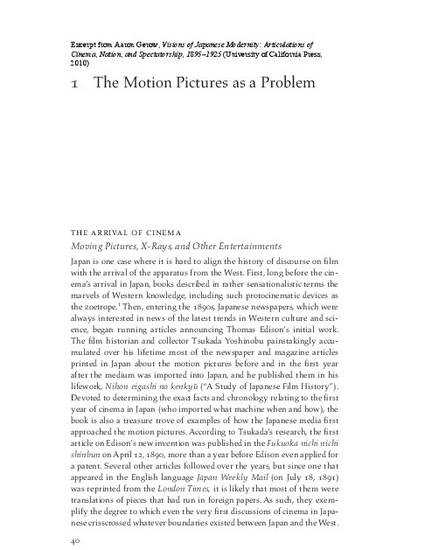
Book
Visions of Japanese Modernity: Articulations of Cinema, Nation, and Spectatorship, 1895-1925 (excerpt)
(2010)
Abstract
Japan has done marvelous things with cinema, giving the world the likes of Kurosawa, Mizoguchi, and Ozu. But cinema did not arrive in Japan fully formed at the end of the nineteenth century, nor was it simply adopted into an ages-old culture. Aaron Gerow explores the processes by which film was defined, transformed, and adapted during its first three decades in Japan. He focuses in particular on how one trend in criticism, the Pure Film Movement, changed not only the way films were made, but also how they were conceived. Looking closely at the work of critics, theorists, intellectuals, benshi artists, educators, police, and censors, Gerow finds that this trend established a way of thinking about cinema that would reign in Japan for much of the twentieth century.
Keywords
- Japanese film,
- early cinema,
- Pure Film Movement,
- censorship,
- benshi,
- film criticism
Disciplines
Publication Date
May, 2010
Publisher
University of California Press
Citation Information
Aaron Gerow. Visions of Japanese Modernity: Articulations of Cinema, Nation, and Spectatorship, 1895-1925 (excerpt). Berkeley(2010) Available at: http://works.bepress.com/aarongerow/9/